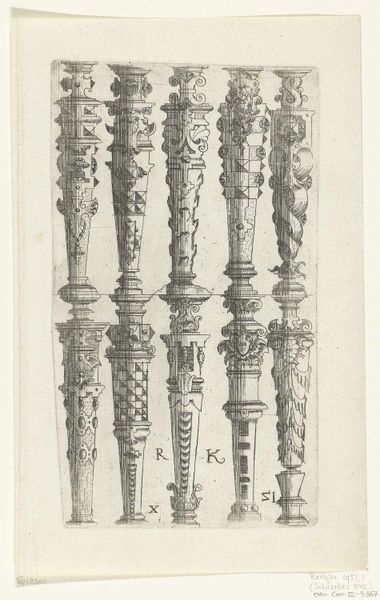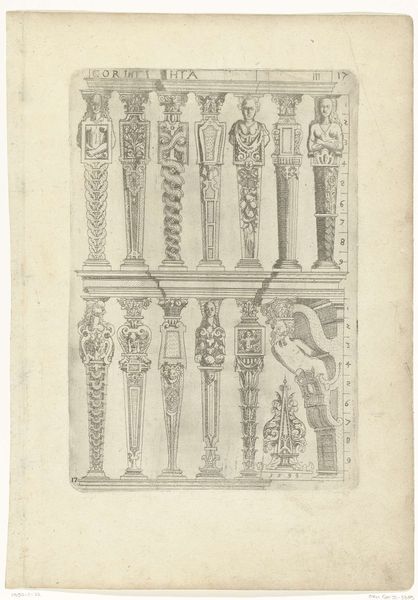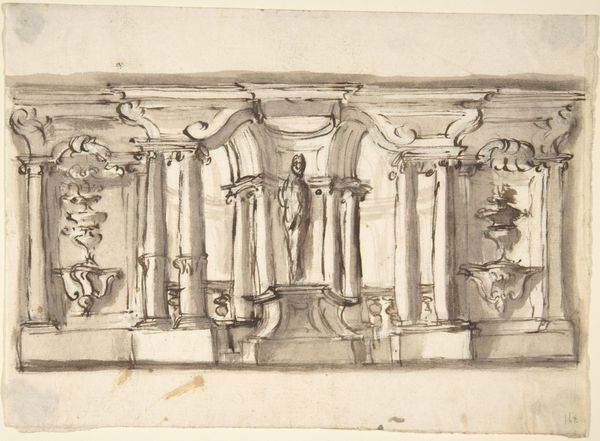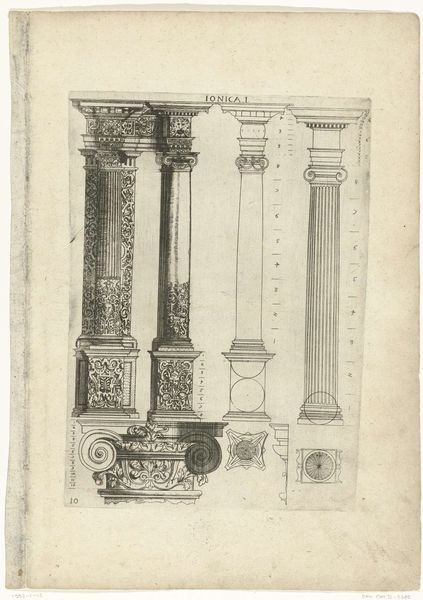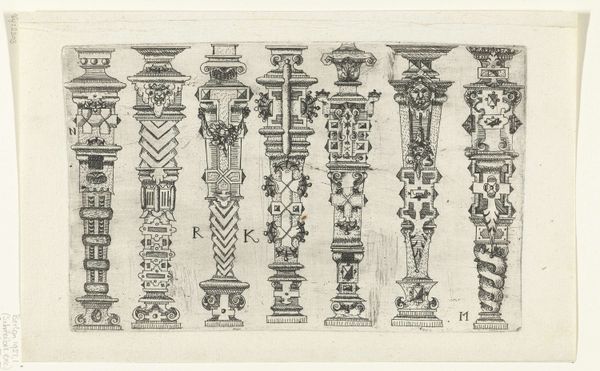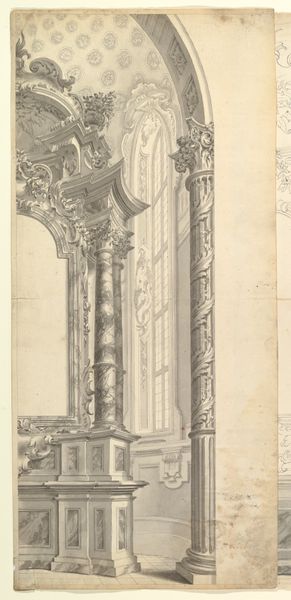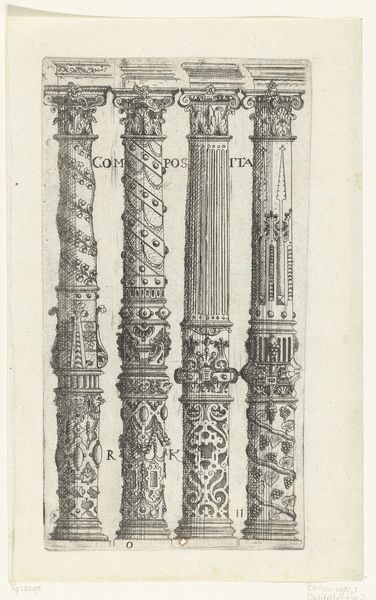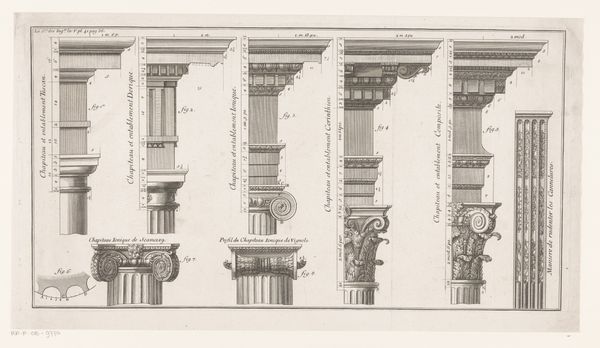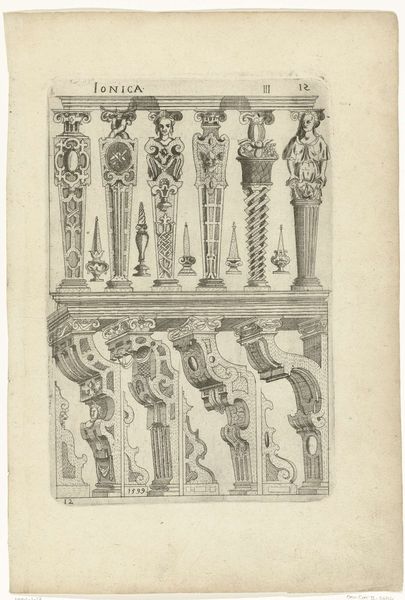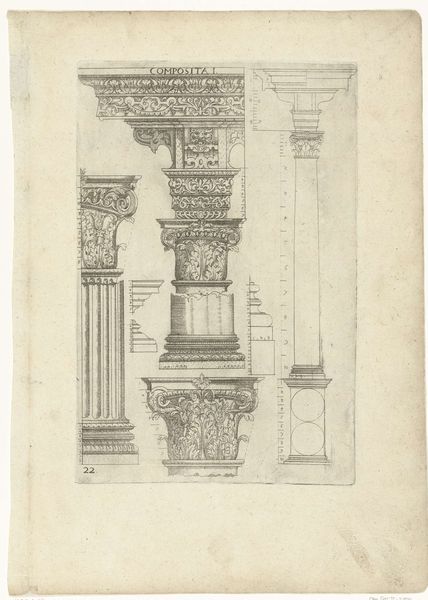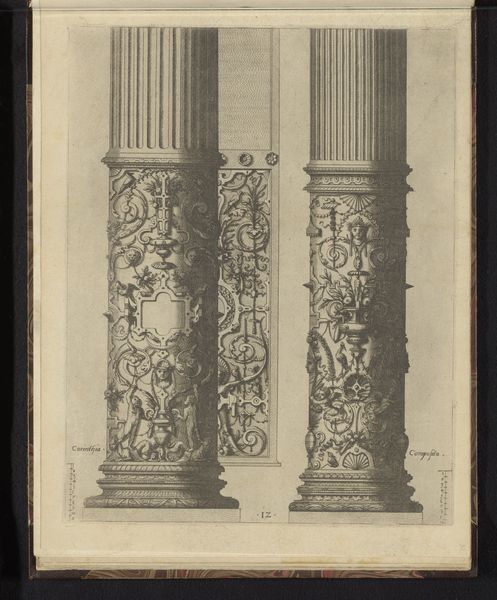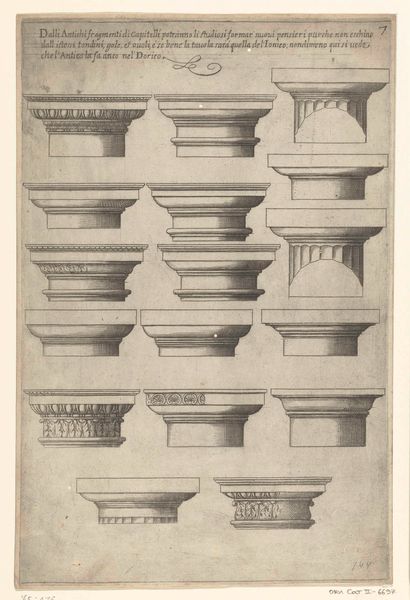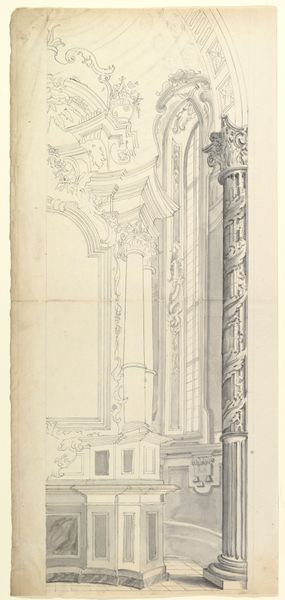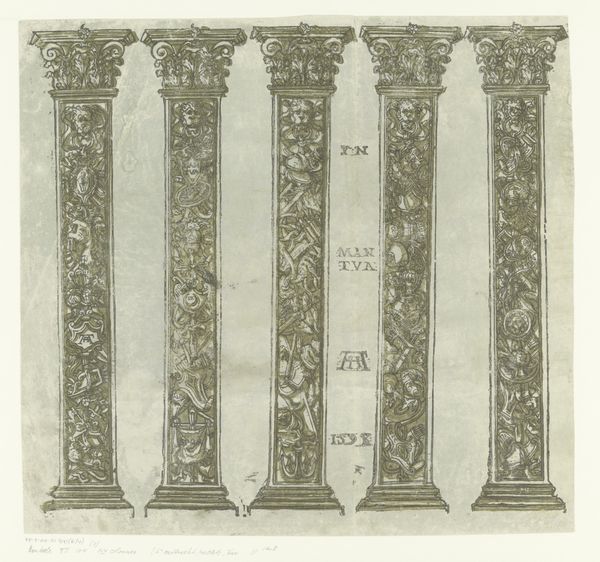
drawing, print, intaglio, engraving, architecture
#
drawing
#
aged paper
#
baroque
# print
#
pen sketch
#
intaglio
#
old engraving style
#
sketch book
#
personal sketchbook
#
sketchwork
#
geometric
#
pen-ink sketch
#
line
#
pen work
#
sketchbook drawing
#
sketchbook art
#
engraving
#
architecture
Dimensions: height 133 mm, width 222 mm
Copyright: Rijks Museum: Open Domain
This print presents seven columns and entablatures, made by an anonymous artist, using etching and engraving. The linear precision shows us the qualities of these processes: the clean mark of the metal tool across the plate, the careful application of acid to bite the lines, the controlled pressure of the printing press. These methods would have been learned through careful apprenticeship, part of a guild system protecting specialist knowledge. Consider the social context of this image. It was likely intended for circulation among architects and craftsmen. This wasn't fine art in the modern sense, but rather a resource, akin to a catalogue or manual. The print offered models that could be copied or adapted in the construction of buildings. In this way, it speaks to a pre-industrial mode of production. The design knowledge is disseminated through prints, to be realized in stone and mortar by skilled hands on the building site. This reminds us that even seemingly straightforward images carry embedded information about labor, skill, and the transmission of knowledge.
Comments
No comments
Be the first to comment and join the conversation on the ultimate creative platform.
